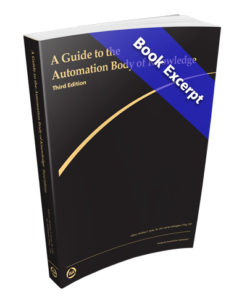AutoQuiz is edited by Joel Don, ISA's social media community manager.
This automation industry quiz question comes from the ISA Certified Automation Professional (CAP) certification program. ISA CAP certification provides a non-biased, third-party, objective assessment and confirmation of an automation professional's skills. The CAP exam is focused on direction, definition, design, development/application, deployment, documentation, and support of systems, software, and equipment used in control systems, manufacturing information systems, systems integration, and operational consulting. Click this link for more information about the CAP program.
Which of the following statements about fuzzy logic controllers is true?
a) the rules for the fuzzy logic replacement for a proportional-integral (PI) controller have two antecedents and two consequents
b) if-then statements are developed as backup rules in case of system failure
c) a fuzzy logic controller is tuned by adjusting the scale factors
d) a fuzzy logic controller cannot replace a proportional-integral-derivative (PID) controller unless the fuzzy controller is linear
e) none of the above
A PI controller works to keep an output from the process, termed the controlled variable (CV), at a desired operating point, called the set point (SP), by adjusting an input to the process, known as the manipulated variable (MV). The control error (E) is the controlled variable minus the set point.
The CV, SP, and E in a PI control algorithm are converted to a percent of measurement scale, and the MV is the percent of the scale of whatever is manipulated, which could be a valve, speed, or set point.
In a fuzzy logic algorithm, these variables are converted to a fractional value from –1 to +1 based on scale factors that the user must enter for each variable. A PI controller is tuned by adjusting the gain or proportional band and integral time settings. A fuzzy logic controller is tuned by adjusting the scale factors.
The correct answer is C, “A fuzzy logic controller is tuned by adjusting the scale factors.”
Reference: Nicholas Sands, P.E., CAP and Ian Verhappen, P.Eng., CAP., A Guide to the Automation Body of Knowledge. To read a brief Q&A with the authors, plus download a free 116-page excerpt from the book, click this link.
About the Editor
Joel Don is the community manager for ISA and is an independent content marketing, social media and public relations consultant. Prior to his work in marketing and PR, Joel served as an editor for regional newspapers and national magazines throughout the U.S. He earned a master's degree from the Medill School at Northwestern University with a focus on science, engineering and biomedical marketing communications, and a bachelor of science degree from UC San Diego.





